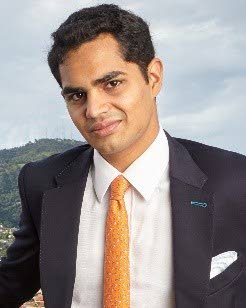Money (that’s what I want)

KIRAN MATHUR MOHAMMED
kmmpub@gmail.com
Not enough companies list shares or borrow money by issuing bonds. And there just aren’t enough buyers and sellers willing to trade or invest. As of September 2018, there was over 4.99 billion in excess cash sitting in commercial banks. This is cash that can be invested to build businesses and create jobs. Potential investment is trapped.
Sagicor has decided to de-list from the TT and Barbados stock exchanges. Following a US$536 million acquisition by Canada’s Alignvest, it will re-list on the Toronto stock exchange. Why? Speaking to the Newsday’s Carla Bridglal, Sagicor’s COO said, “The illiquidity of the local markets meant that even a small sale could change the entire value of the company…When our profits grow, nothing happens. When our profits fall, nothing happens. If Barbados and TT won’t give us proper value we’ve said we will delist and go to Toronto.”
As it is, issuances are expensive. They require companies to navigate a thicket of regulations and documentation requirements. Equity (stock) issuances mean pleasing shorter-term investors, more external scrutiny, less control; and exposure to stock price volatility often unmoored from a company’s fundamentals.
Many local firms and multinational subsidiaries are flush with TT dollars and feel less of a need to raise capital – at least in local currency. Fear of depreciation and a lack of perceived investment opportunities means that many keep foreign currency abroad or hold back on US dollar borrowing.
As a result, institutional investors like big mutual funds, asset managers and the National Insurance Board face a dearth of investment opportunities. People are reluctant to sell. What else would they invest in?
Many small “retail” investors feel shut out. Most don’t feel equipped with the educational tools to invest. In the US, it is as simple as opening an e-trade account, doing an online course, and you’re ready to go.
What can we do that is quick and cheap: and can unlock billions in capital? What little I’ve learned from trying to raise local bonds has been instructive. I’ve also spoken to senior finance executives.
Mckinsey’s report last year on Deepening Capital Markets in Emerging Economies and the World Economic Forum’s 2016 white paper on Accelerating Capital Markets Development in Emerging Economies buttress many of their points.
One banker pointed out that incentives already exist for public issuances. Excess liquidity in the system means that the strongest firms can get cheaper interest rates or raise equity more easily than from banks or private investors. For multinationals like BP, it can even be cheaper to raise funds locally than internationally. What prevents this are documentation hurdles: and a complicated and expensive process.
Privately, senior Securities and Exchange Commission (SEC) officials agree. The SEC is stretched thin but is committed to reform. We don’t need to reinvent the wheel – we can copy Singapore; or mirror US reporting. Banks would be happy to support any streamlining effort.
More standardisation would attract international investors and foreign currency inflows. A quick way of sourcing international foreign direct investment is to convince the largest funds (think iShares or FTSE) to include local stocks in their emerging markets indices. Companies, brokerages and agencies such as InvestTT could club together and pitch international funds. There is little downside to this. The worst they can say is no.
Growing exporters like Bermudez or Nutrien are the best positioned to benefit from capital markets issuances. For other companies, a Caricom currency clearing house would help investors raising money in local currency to convert and participate in regional opportunities.
As I’ve mentioned, Thomas Piketty’s Capital in the 21st Century has shown that returns to capital have contributed to inequality over the centuries. As many people as possible should have a stake in our companies’ capital. Asset managers can continue to fund more financial literacy courses. They can also introduce inclusive products. Sekou Mark and the UTC’s Calypso index fund is a good example.
The SEC can then support a greater market in retail bonds. This would allow us to invest easily in instruments normally only available to a select few. This must be transparent, so investors clearly understand market risks. And it can continue to be anchored by the listing of state enterprises: UTC itself is a good candidate.
More widespread use of defined contribution pension funds (like in Chile and Singapore) will help. Historically, pension funds have been the most direct means to drive more widespread capital ownership.
This is money on the table. We can pocket it and walk off whistling.
Kiran Mathur Mohammed is a social entrepreneur, economist and businessman. He is a former banker, and a graduate of the University of Edinburgh.

Comments
"Money (that’s what I want)"